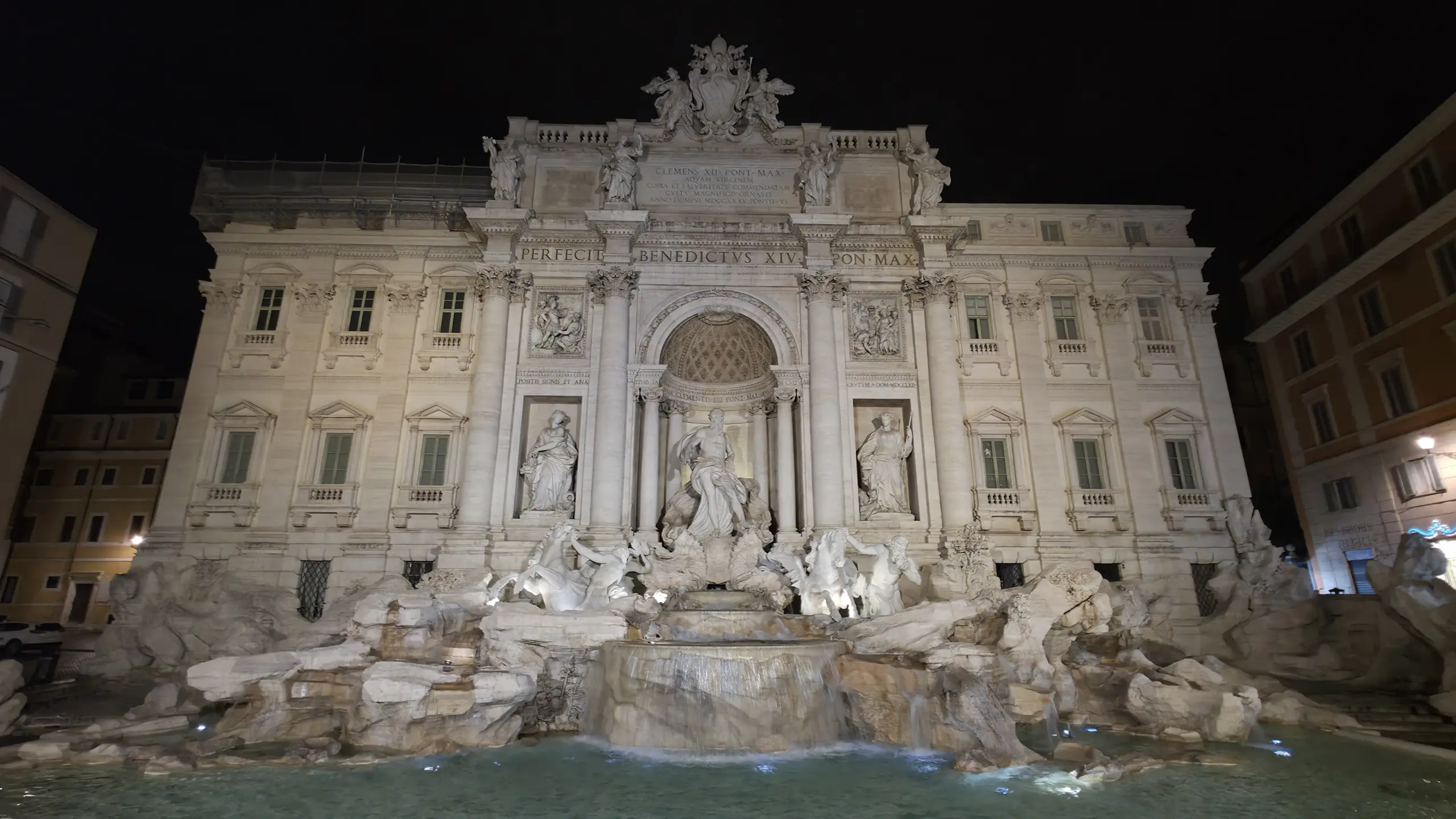Ciao sognatori, 🌊I followed the sound before I saw it, the rush of water, the hush of voices, the flutter of expectation. And then, like a curtain pulled back on a Roman dream, the Trevi Fountain revealed itself! I had seen it in photos, in films, in stories. But nothing prepares you for that first glimpse. Set against a tucked-away piazza and framed by baroque brilliance, Fontana di Trevi feels more like a stage than a monument. And in many ways, it is. A stage for wishes, reunions, quiet smiles, and hearts thrown wide open.
🏛️ A Baroque Masterpiece with Ancient Roots
While the current fountain was completed in 1762, its history stretches back over two thousand years. The Trevi Fountain marks the terminal point of the Aqua Virgo, an aqueduct commissioned by Marcus Agrippa in 19 BC to bring fresh water to ancient Rome. According to legend, a young Roman girl (virgo) guided thirsty soldiers to the spring, a moment immortalized in the relief sculpture on the right side of the fountain.
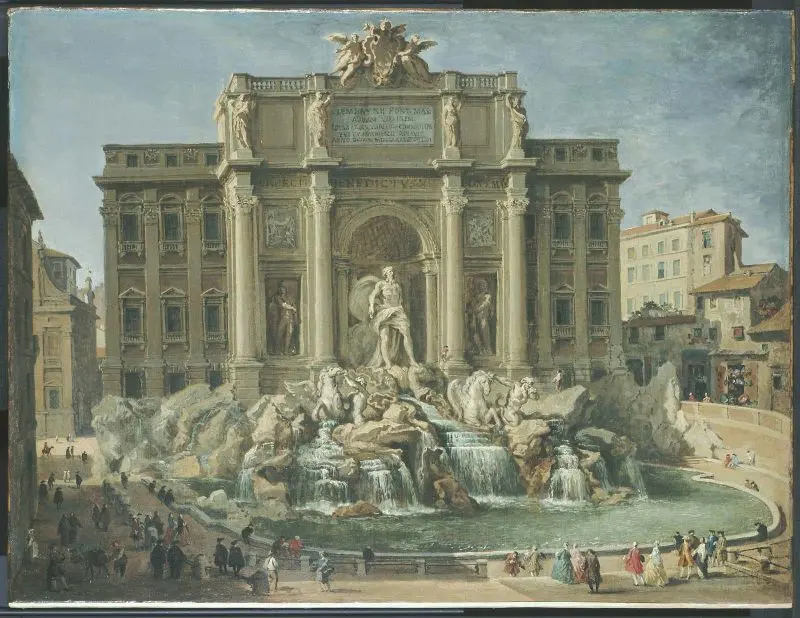
Fast forward to the 18th century, when Pope Clement XII held a public competition to redesign the outdated fountain. Though more famous architects submitted designs, it was Nicola Salvi, a relatively lesser-known Roman, who won the commission in 1732. Sadly, he died before its completion. The final touches were made by Giuseppe Pannini in 1762.
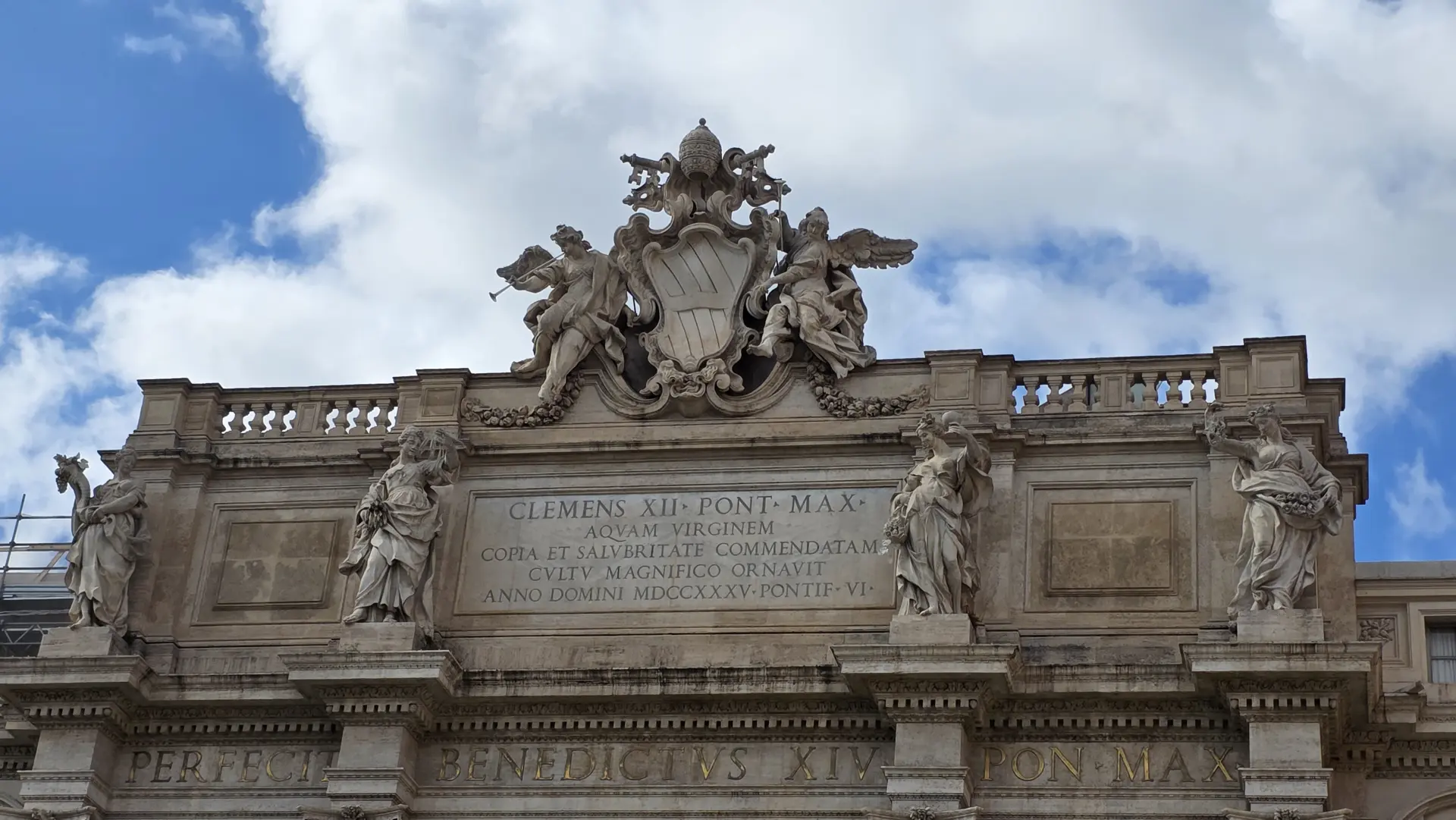
Standing over 26 meters high and nearly 50 meters wide, the Trevi is Rome’s largest fountain, dramatically integrated into the back wall of Palazzo Poli. It is the very essence of Baroque theatricality: elaborate, expressive, and perfectly composed for emotional impact.
🧜 Iconography and Design
At the center is Oceanus (often mistaken for Neptune), commanding a shell-shaped chariot drawn by two sea horses — one calm, one wild — symbolizing the dual nature of water: peaceful and tempestuous. He is flanked by Tritons, mythical sea gods, who blow into shell trumpets as if announcing the arrival of water to the city.
To his left stands Abundance, holding a cornucopia overflowing with the bounty of nature. On the right is Salubrity (or Health), crowned with laurel and offering a chalice from which a serpent drinks, a timeless symbol of healing.
Above them, two intricate reliefs narrate the story behind it all. On one side, Agrippa approves the design of the aqueduct. On the other, a young maiden points to the spring that would become the Aqua Virgo, immortalizing the legend of the virgin who led Roman soldiers to fresh water. It’s not just decoration, it’s layered storytelling in marble, where myth meets engineering, and symbolism flows as freely as the fountain itself.
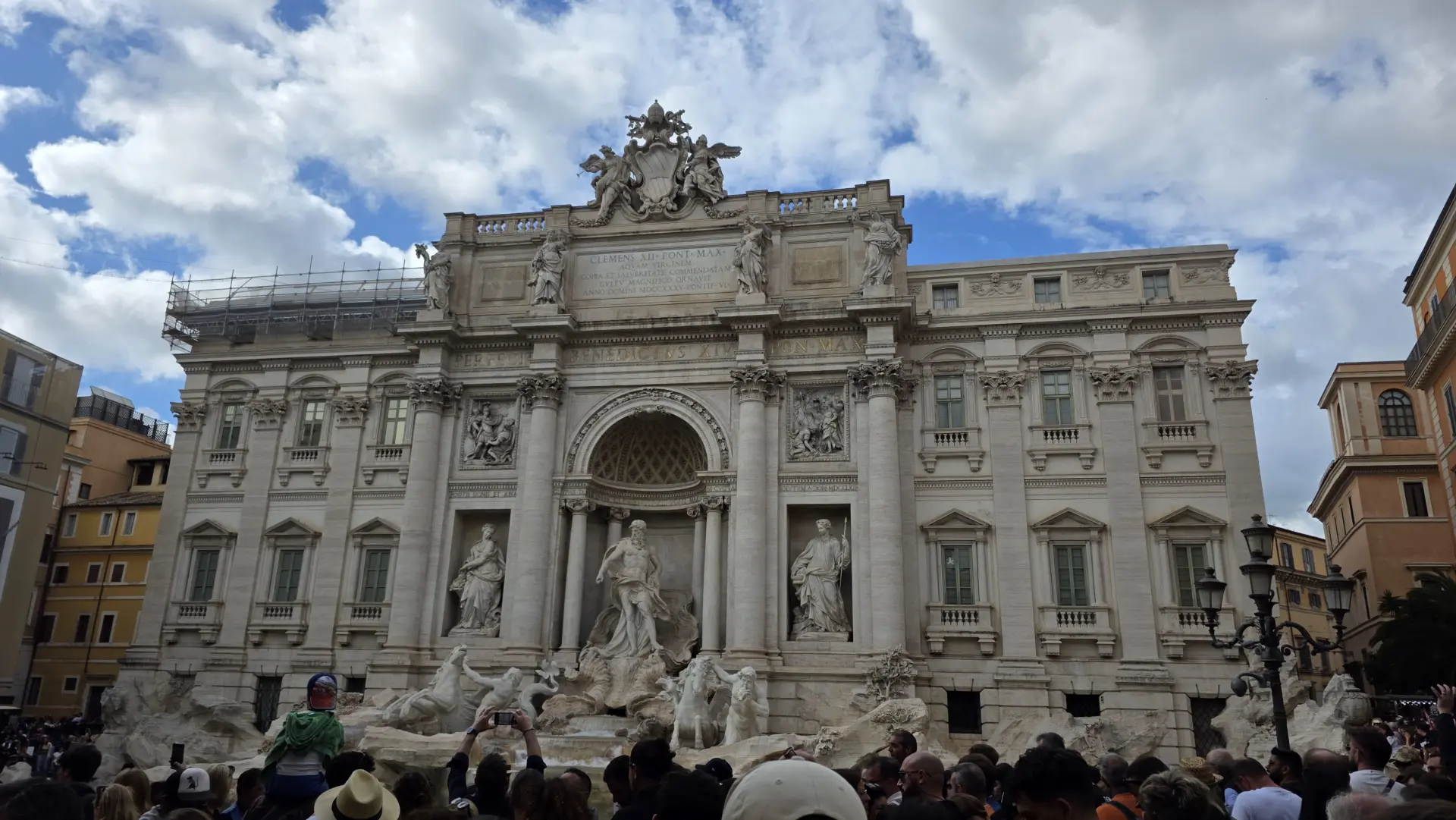
✨ The Ritual of the Coin Toss
Yes, I tossed a coin. And in doing so, I joined centuries of travelers and dreamers who had stood in the same spot, hearts full of hope. According to tradition, one coin ensures a return to Rome. Two coins promise a new romance. And three coins mean marriage is on the horizon. You must toss it using your right hand over your left shoulder, without looking back, a small ritual of trust and belief.
Each day, over €3,000 in wishes rain down into the basin. The coins are regularly collected and donated to Caritas, a Roman charity that funds housing, food, and community programs for those in need. The fountain is drained and cleaned several times a week, a gesture of preservation and purpose, part ancient rite, part modern philanthropy.
As for my wish? Quiet. Personal. Full of gratitude and longing. The kind of wish that makes sense only when whispered over rushing water, where the city feels like it’s listening.
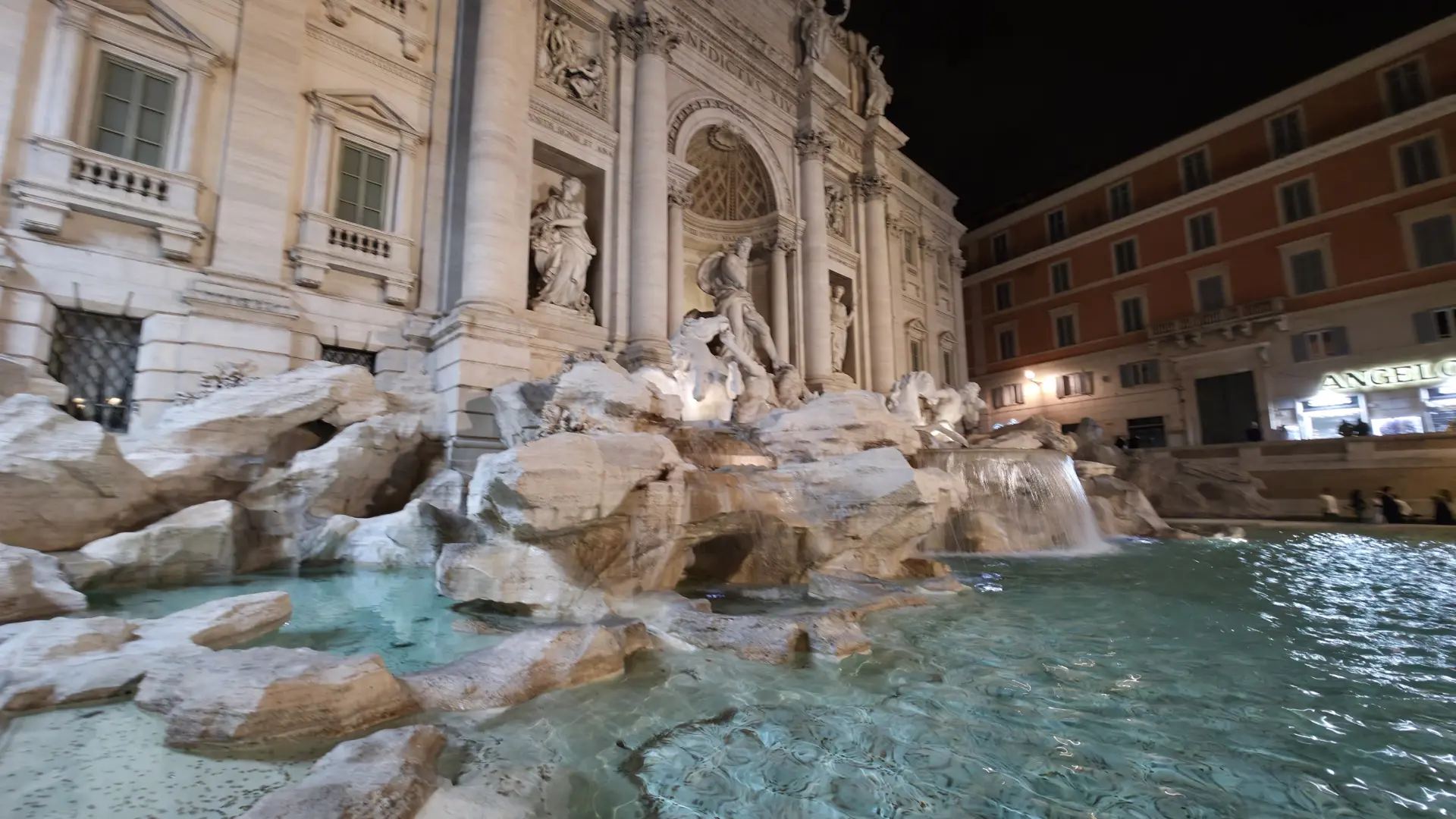
🎬 Trevi on the Silver Screen
The Trevi Fountain has starred in some of cinema’s most iconic moments.
- La Dolce Vita (1960) – Anita Ekberg’s moonlit walk into the water became legend (though today, entering the fountain is strictly forbidden).
- Roman Holiday (1953) – A romantic stop for Audrey Hepburn and Gregory Peck.
- Three Coins in the Fountain (1954) – Which helped spread the coin-toss tradition worldwide.
- The Lizzie McGuire Movie (2003) – For a whole new generation of dreamers.
- Angels & Demons (2009) – Brief but atmospheric.
But no screen can capture the feeling of standing there in person. The cool mist on your face, the golden glow on the marble, the sound of wishes falling into centuries-old water, it’s unforgettable.
🛠️ Restoration & Travel Tips
The fountain’s most significant restoration in modern history took place in 2014–2015, sponsored by Fendi as part of its “Fendi for Fountains” initiative. With €2 million invested, the entire structure was cleaned, re-sculpted, and illuminated with new LED lighting that now glows beautifully at night.
Tips for Your Visit:
- Best Time: Early morning (before 8 AM) or late evening (after 10 PM) for a peaceful experience.
- Don’t: Climb, sit, or dip your hand in the water. Respect the space, it’s sacred.
- Do: Grab a gelato, find a bench, and take your time.
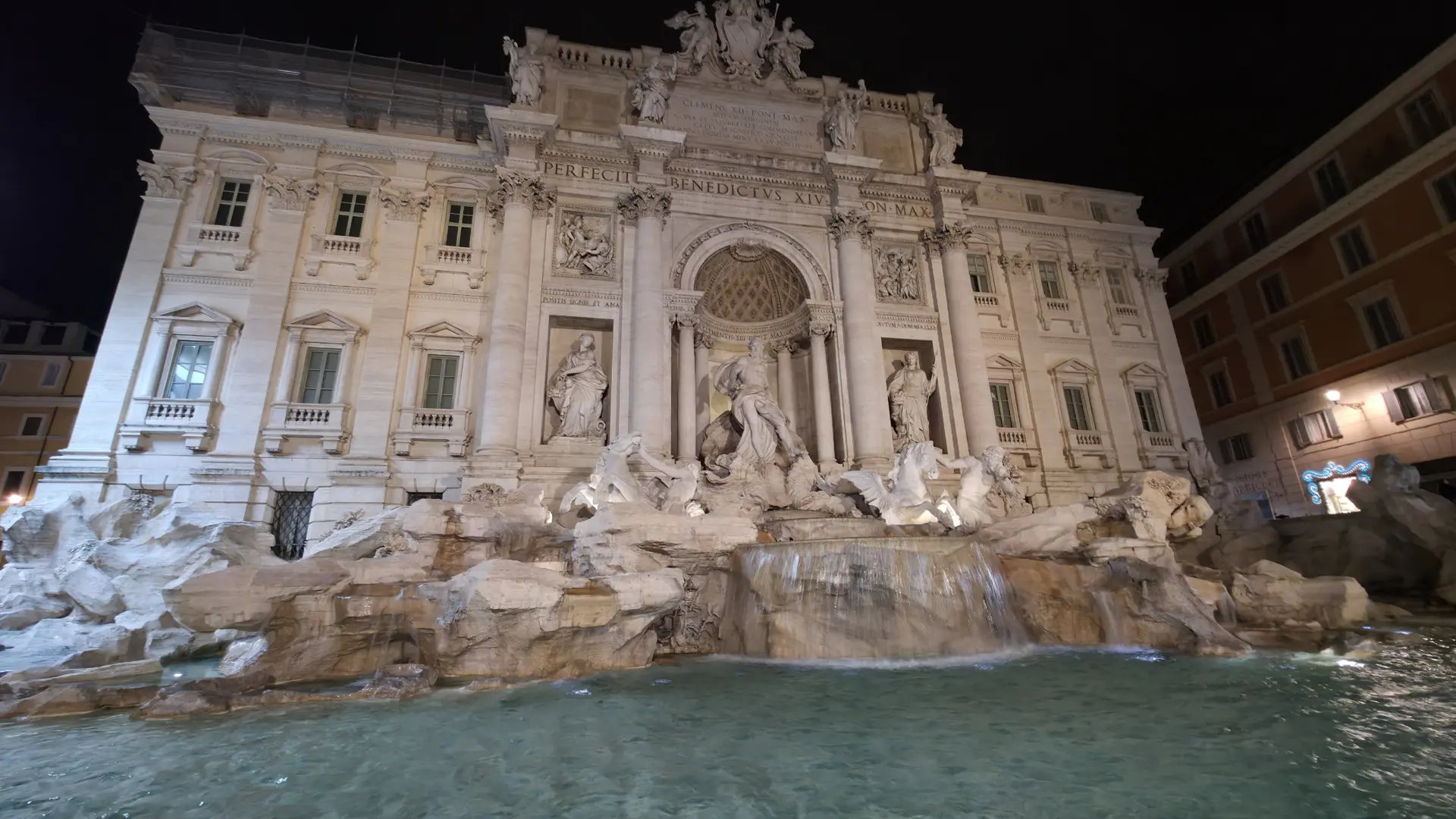
Final Thoughts
The Trevi Fountain isn’t just a destination, it’s a feeling. It’s the heartbeat of a city that blends grandeur with intimacy, history with hope.
There’s something uniquely human about standing before a roaring baroque masterpiece, closing your eyes, and tossing a coin into eternity. That brief pause between wish and splash is where the magic lives. I watched families toss coins, couples kiss, and strangers quietly reflect. The fountain holds all of it. Every joy, every longing, every whispered dream.
Rome is a city that changes you. And Trevi? It welcomes you back before you’ve even left.
xoxo,
Bubbly 💖
🌟 Everything You Need to Plan Your Dream Trip in 2026
- 🌟 Luxury Hotels - Find premium stays with Booking.com & Hotels.com
- 🏡 Vacation Rentals - Discover unique properties on VRBO
- 🏞️ Guided Tours - Explore with Viator or GetYourGuide
- 🎫 Attraction Tickets - Skip the lines with Tiqets
- 🚢 Ocean Cruises - Set sail with Cruise Direct
- 📱 International SIMs - Stay connected with Saily
- 🚗 Car Rentals - Budget-friendly options from Discover Cars
- 🌐 Secure VPNs - Browse safely with NordVPN
- 💶 Currency Exchange - Best rates with Wise
- 🗣️ Learn Languages - Master the local language with Babbel and Rosetta Stone

